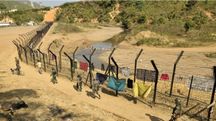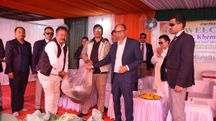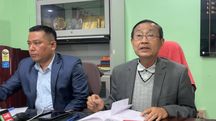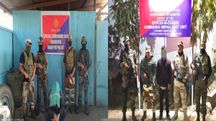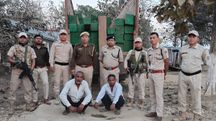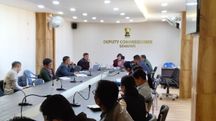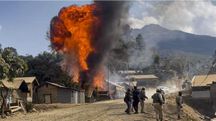Over 100 health experts demand presidential intervention in Manipur's collapsing healthcare system
Over 100 health experts call for urgent presidential action to tackle Manipur's healthcare crisis. They warn that without immediate steps, patient care will worsen across the state
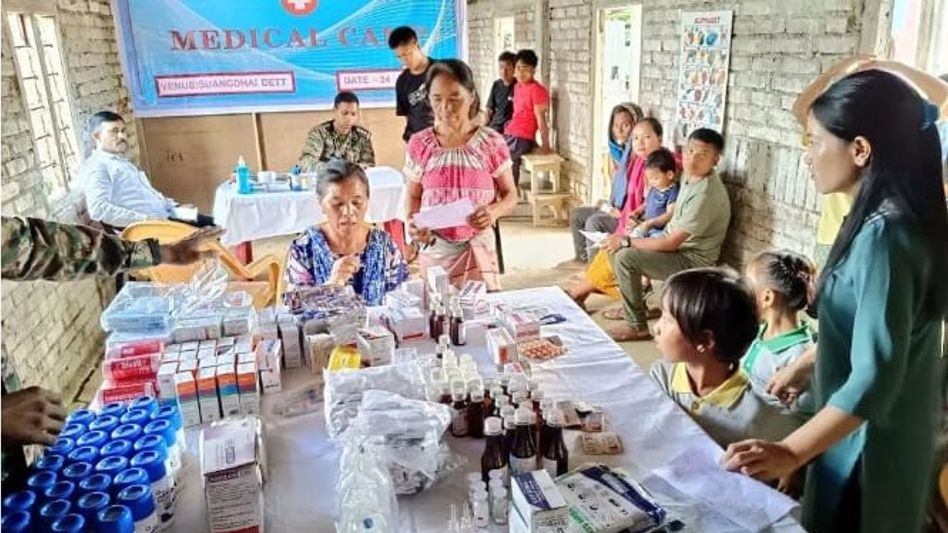
Two years after ethnic violence erupted in Manipur, the state's healthcare infrastructure remains in shambles, prompting a coalition of more than 100 prominent health experts, lawyers, and activists to appeal directly to President Droupadi Murmu for immediate intervention.
The letter, coordinated by the National Health Rights Alliance, All India Feminist Alliance, and National Alliance for Justice, Accountability and Rights, warns of a deepening public health emergency that has left thousands without access to basic medical care.
"Even as the national conscience moves on, lakhs in Manipur remain without access to safe, dignified, and life-saving health services. This is a moral and constitutional failure," the petition states.
The ongoing conflict has devastated Manipur's already fragile health system. Hospitals have been damaged, health workers have fled, and essential medical supplies have been depleted. More than 70,000 people remain displaced in overcrowded relief camps with inadequate sanitation and limited medical facilities.
The crisis has particularly affected rural areas, where some districts operate with minimal health infrastructure. Tengnoupal district relies on a single Community Health Centre, while Kangpokpi lacks a proper district hospital. Many areas that previously had functioning health centres now stand empty due to violence and staff shortages.
Dr Vandana Prasad, a prominent public health expert and signatory to the petition, joined dozens of other medical professionals in highlighting the systematic breakdown of healthcare delivery across the state.
The violence has disproportionately impacted vulnerable populations. Women face increased risks of gender-based violence and lack access to reproductive healthcare services. Children have experienced widespread trauma, with many developing PTSD, anxiety, and depression after witnessing violence firsthand.
Educational disruption has compounded these problems, with prolonged school closures threatening the future prospects of an entire generation. Mental health services remain grossly inadequate despite the overwhelming need.
The coalition has presented a detailed ten-point plan to address the crisis, including the formation of a high-powered Special Task Force with Cabinet Secretary-level authority to assess and respond to the health emergency within two months.
Key demands include urgent recruitment of medical staff, establishment of functional Community Health Centres in violence-affected areas like Tuibuang and Sangaikot, and enhanced central funding to address the state's conflict-related vulnerabilities.
The petition also calls for zero tolerance of discrimination in healthcare based on gender, ethnicity, or religion, and the eventual creation of a State Law for the Right to Health.
Since Manipur remains under President's Rule, the signatories have specifically appealed to President Murmu to personally visit the state and meet with affected communities from both hills and valley regions.
"Healthcare is not a favour—it is a right. The people of Manipur cannot be left to suffer in silence any longer," the letter concludes.
The petition has garnered support from respected health professionals, including Dr Mira Shiva, Dr Veena Shatrugna, Dr Sylvia Karpagam, and Dr Mohan Rao, along with prominent lawyers and social activists from across India.
The appeal comes as monsoon season approaches, raising concerns about potential disease outbreaks in overcrowded relief camps that lack proper sanitation facilities. The signatories warn that without immediate intervention, Manipur's health indicators, which had previously shown improvement, could suffer lasting damage.
The crisis has exposed deeper structural problems in India's healthcare system, particularly in conflict-affected regions. The petition emphasises that the healthcare collapse is "not collateral damage—it is a direct outcome of systemic neglect and political indifference."
With 253 relief camps currently sheltering displaced populations across 10 districts, and reports of 142 deaths and over 6,000 injuries, the humanitarian crisis shows no signs of abating. The coalition's intervention represents one of the most comprehensive attempts to address the health emergency through constitutional channels.
Copyright©2026 Living Media India Limited. For reprint rights: Syndications Today
